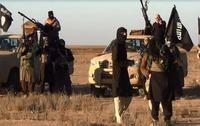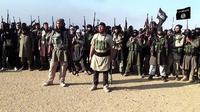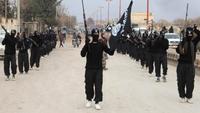-
CBP IA’s Janine Corrado and Jeffrey M. Matta leave agency for new positions
Janine Corrado and Jeffrey M. Matta are leaving CBP IA to assume other positions outside of CBP IA.Corradowill receive a promotion to the position of Chief of Staff for Gregory Marshall, Chief Security Officer at DHS. Matta will take a position in the Office of Field Operations at CBP. J. Gregory Richardson, who worked at CBP IA, complained that Corrado and Matta ignored his status as a disabled veteran despite extensive documentation of his medical condition.
-
-
San Francisco to add local groundwater to reservoir supply
The San Francisco Public Utilities Commission has begun digging in the area around Golden Gate Park with the intention of adding local underground water flows to the traditionally sourced water from the Hetch Hetchy Reservoir in Yosemite. The change is expected to take place over the next two years and will replace between 10 to 15 percent of the water supply. Despite the fact that the water is less pure, city officials expect that difference will be negligible.
-
-
U.K. government's sweeping new counterterrorism bill unveiled today
The U.K. government unveils today (Wednesday) sweeping new measures to combat extremism and terrorism, and tackle radicalization, in the United Kingdom. Among other measures, the new counterterrorism bill will require schools and universities to exclude radical speakers from their campuses, and give the home secretary the powers to deny entry (or re-entry) to the United Kingdom to U.K. British citizens suspected of involvement in terrorism-related activity abroad. These citizens’ travel documents will be cancelled and their names placed on no-fly lists for up to two years. Home Secretary Theresa May said: “We are engaged in a struggle that is fought on many fronts and in many forms. It is a struggle that will go on for many years. And the threat we face right now is perhaps greater than it ever has been. We must have the powers we need to defend ourselves.”
-
-
Impasse in Congress over terrorism insurance (TRIA) renewal

The Terrorism Risk Insurance Act(TRIA) is expected to expire by 31 December unless Congress renews the legislation or places a temporary extension. The legislation, initially established in November 2002 as a federal backstop to protect insurers in the event an act of terrorism results in losses above $100 million, has been extended and reauthorized. The insurance industry supports the reauthorization approved by the Senate, and opposes a short-term extension. Some insurance companies have noted on their contracts that policyholders could lose terrorism coverage if TRIA is not renewed.
-
-
A malware more sophisticated than Stuxnet discovered
Security experts at Symantechave discovered the world’s most sophisticated computer malware, Regin. Thought to have been created by a Western intelligence agency, and in many respects more advanced than Stuxnet — which was developed by the U.S. and Israeli government in 2010 to hack the Iranian nuclear program — Regin has targeted Russian, Saudi Arabian, Mexican, Irish, and Iranian Internet service providers and telecoms companies. “Nothing else comes close to this … nothing else we look at compares,” said one security expert.
-
-
Obama’s executive action may divert resources from handling legal immigrants

Critics of President Barack Obama’s executive order on immigration are worried that shifting immigration resources from work done on behalf of legal immigrants to applications filed by those in the country illegally would discourage future immigrants from entering the United States legally.A former federal immigration official compares the new immigration effort to the 2012 Deferred Action for Childhood Arrival program (DACA), which drew more than 600,000 applications from Dreamers.One of the effects of DACA was an increase in the wait time for green cards for immigrant spouses of U.S. citizens from five months to fifteen months, which critics blame on personnel being diverted to work on the DACA program.
-
-
U.S. anti-ISIS campaign hindered by lack of reliable intelligence sources on the ground

U.S.-led airstrikes on the Islamic State (ISIS) and other militant groups in Iraq and Syria are hindered by a lack of credible intelligence sources on the ground, according to senior intelligence officials. “It’s a black hole,” one U.S. official saidaboutthe challenge of tracking terrorists and assessing casualties in a war zone limited to airstrikes. “We just don’t have the assets on the ground — that would have been one advantage of arming the Syrian moderates two years ago,” another expert said. “Syria is such a fluid environment, it would be very difficult to develop assets now.”
-
-
James F. Tomscheck forced disabled veteran from CBP IA – Pt. 2

While the details and implications of President Barack Obama’s immigration reforms continue to be closely scrutinized, an unprecedented scandal unfolds within the federal agency charged with providing security and control at our Mexican border. Customs and Border Patrol (CBP), a law enforcement agency of 65,000 employees, is potentially facing alarming charges fostered by its former assistant director of Customs and Border Protection Internal Affairs (CBP IA), James F. Tomscheck. Tomscheck, who turned federal whistleblower last summer, lambasted his superiors with multiple accusations. Allegations, however, have arisen against Tomscheck that he knowingly discriminated against a disabled military veteran within CBP IA, then fired him.
-
-
Security concerns over purchase of Waldorf Astoria by Chinese company

Citing espionage risk, U.S. officials are expressing concern over the sale of the historic Waldorf Astoria hotel in New York City to a Chinese insurance company. The sale of the hotel will likely lead to a review by the U.S. Committee on Foreign Investment (CFIUS) of the Chinese firm’s long-term plans for the site and the finer details of the sale. “Because the agreement calls for major renovations to the hotel, CFIUS will be worried that the Chinese could engage in some form of espionage,” said a former Treasury Department official who managed CFIUS reviews.
-
-
U.S. tracking 150 people who travelled to Syria – some of them “to fight” in ISIS ranks

U.S. law enforcement agencies are tracking about 150 people who traveled from the United States to Syria in recent months, “a significant number of them to fight,” FBI director James Comey told reporters at a briefing in Boston on Tuesday. The number of Americans who traveled to the Middle East to join the Islamic State (ISIS) is higher than figures mentioned earlier by U.S. intelligence and law enforcement of Americans who actually joined ISIS ranks. Last month, Comey said the FBI was aware of “a dozen or so” Americans fighting in Syria “on the side of the terrorists” – and he repeated that number on Tuesday, adding that the total number of travelers under surveillance is ten times that.
-
-
RAND study assesses threat posed by Americans joining jihadist fronts abroad
Although it is difficult to pin down the exact numbers of Western fighters slipping off to join the jihadist fronts in Syria and Iraq – the number is estimated to be around 100 — U.S. counterterrorism officials believe that those fighters pose a clear and present danger to American security. Some of these fighters will be killed in the fighting, some will choose to remain in the Middle East, but some will return, more radicalized than before and determined to continue their violent campaigns back in the United States.
-
-
Jerusalem attacks are no isolated incident: the third intifada is here
The attack on a Jerusalem synagogue in which four Jewish worshippers were killed and eight were injured has sparked new fears that fighting between Israel and Palestinian could flare up once more. The attack, by two Palestinians carrying meat cleavers and a gun, has the potential to kick off fresh religious confrontation and a third intifada. In the first intifada of 1987, the Palestinians rose up against the Israeli occupation of the West Bank and Gaza for the first time. The 2000 intifada followed a failed peace process. But this intifada is not being fought over territory or negotiating positions. It is a religious conflict that is bubbling up as a result of contrasting claims to sovereignty over the Holy City of Jerusalem. This intractable conflict has long been defined by issues such as the future of the Israeli settlements in the West Bank and the fate of Palestinian refugees. Now the added burden of more religious tensions is certain to condemn the people of the Holy Land to many more years of bloodshed.
-
-
Sandia’s Cooperative Monitoring Center: 20 years of work supporting international security agreements
Sandia National Laboratories’ Cooperative Monitoring Center (CMC) is celebrating its twentieth anniversary of promoting the principles of cooperation and the value of technology in support of international security agreements. Since it was established in 1994, the CMC has worked to address security issues by bringing together policy and technical experts from different nations; showing participants how to use technology and confidence-building measures to solve regional and global security concerns; and creating institutions to promote security in regions around the world.
-
-
GOP senators block NSA surveillance reform bill
The USA Freedom Act, a bill introduced last year aiming to curtail some of the NSA’s data collection programs, especially those focusing on U.S. phone data, failed last night to reach the 60-vote threshold required to cut off debate and move to a vote. Senator Mitch McConnell (R-Kentucky), the Republican leader, and other leading GOP senators worked hard to defeat the bill. Nearly a year-and-a-half after the Edward Snowden’s revelations, the act was considered the most politically viable effort in four decades to place curbs on NSA activities. Civil libertarians and technology companies supported the bill, as did the White House and the intelligence community – although the latter two did so more out of fear that a failure of the bill would jeopardize the extension of Section 215 of the Patriot Act, which expires next June.
-
-
ISIS has sufficient quantities of arms to carry on fighting for two years: UN

A new report prepared for the United Nations Security Council warns that Islamic State (ISIS) has in its possession sufficient reserves of small arms, ammunition, and vehicles to wage its war for Syria and Iraq for up to two years. The size and diversity the Islamist organization’s arsenal allow the group durable mobility, range, and a limited defense against low-flying aircraft. The report notes that even if the U.S.-led air campaign continues to destroy the group’s vehicles and heavier weapon systems, such a campaign “cannot mitigate the effect of the significant volume of light weapons” Isis possesses.
-
More headlines
The long view
Factories First: Winning the Drone War Before It Starts
Wars are won by factories before they are won on the battlefield,Martin C. Feldmann writes, noting that the United States lacks the manufacturing depth for the coming drone age. Rectifying this situation “will take far more than procurement tweaks,” Feldmann writes. “It demands a national-level, wartime-scale industrial mobilization.”
No Nation Is an Island: The Dangers of Modern U.S. Isolationism
The resurgence of isolationist sentiment in American politics is understandable but misguided. While the desire to refocus on domestic renewal is justified, retreating from the world will not bring the security, prosperity, or sovereignty that its proponents promise. On the contrary, it invites instability, diminishes U.S. influence, and erodes the democratic order the U.S. helped forge.
Fragmented by Design: USAID’s Dismantling and the Future of American Foreign Aid
The Trump administration launched an aggressive restructuring of U.S. foreign aid, effectively dismantling the United States Agency for International Development (USAID). The humanitarian and geopolitical fallout of the demise of USAID includes shuttered clinics, destroyed food aid, and China’s growing influence in the global south. This new era of American soft power will determine how, and whether, the U.S. continues to lead in global development.
Water Wars: A Historic Agreement Between Mexico and US Is Ramping Up Border Tension
As climate change drives rising temperatures and changes in rainfall, Mexico and the US are in the middle of a conflict over water, putting an additional strain on their relationship. Partly due to constant droughts, Mexico has struggled to maintain its water deliveries for much of the last 25 years, deliveries to which it is obligated by a 1944 water-sharing agreement between the two countries.
How Disastrous Was the Trump-Putin Meeting?
In Alaska, Trump got played by Putin. Therefore, Steven Pifer writes, the European leaders and Zelensky have to “diplomatically offer suggestions to walk Trump back from a position that he does not appear to understand would be bad for Ukraine, bad for Europe, and bad for American interests. And they have to do so without setting off an explosion that could disrupt U.S.-Ukrainian and U.S.-European relations—all to the delight of Putin and the Kremlin.”
How Male Grievance Fuels Radicalization and Extremist Violence
Social extremism is evolving in reach and form. While traditional racial supremacy ideologies remain, contemporary movements are now often fueled by something more personal and emotionally resonant: male grievance.
